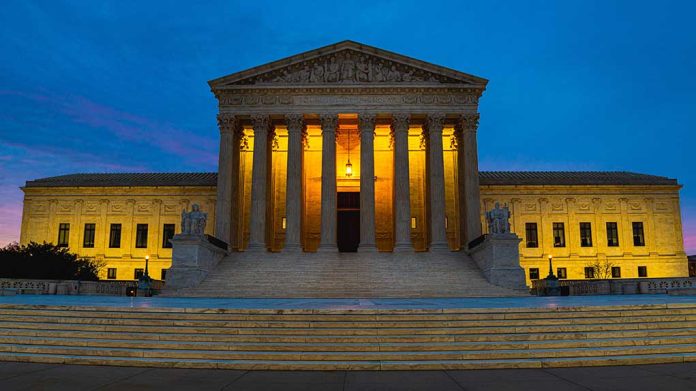
The Supreme Court is set to review Tennessee’s ban on gender-affirming care for minors, sparking a nationwide debate on children’s rights, medical ethics, and state authority.
At a Glance
- Tennessee’s 2023 law bans gender-affirming treatments for minors, including puberty blockers and surgeries
- The law is challenged for allegedly violating the Constitution’s equal protection clause
- Tennessee argues the law protects children from “irreversible, unproven medical procedures”
- The case’s outcome could impact similar laws in over 20 other states
- Public opinion largely opposes these medical interventions for minors, according to recent polling
Tennessee Defends Ban on Gender-Affirming Care
Tennessee’s Attorney General Jonathan Skrmetti is taking a stand to defend the state’s ban on gender-affirming care for minors in the U.S. Supreme Court. The 2023 law, which prohibits puberty blockers, cross-sex hormones, and surgeries for minors, has sparked intense debate and legal challenges. Skrmetti argues that the law is designed to protect children from what he calls “irreversible, unproven medical procedures.”
The state’s position is clear: this is not a matter of discrimination but rather a legitimate exercise of state authority to regulate medical practices, especially those involving minors. Skrmetti’s brief cites European countries’ restrictions on gender-affirming care as a precedent, suggesting a growing international concern over these treatments for young people.
Constitutional Challenges and Federal Opposition
On the other side of the courtroom, plaintiffs, including families of transgender children, argue that the law violates their constitutional rights. The American Civil Liberties Union (ACLU) and other legal groups represent these plaintiffs, claiming that the law treats people differently based on sex, which they argue is a form of discrimination.
Adding weight to the opposition, the federal government has thrown its support behind the plaintiffs. The Biden-Harris administration argues that preventing minors from accessing transgender treatments amounts to sex discrimination, a stance that puts it at odds with Tennessee’s law and similar legislation in other states.
Medical Community Divided
The medical community remains divided on the use of gender-transition treatments for minors. Critics of these interventions raise concerns about the potential for irreversible harm and the lack of long-term studies on their effects. Dr. Jared Ross, a medical professional critical of early intervention, states:
Supporters of gender-affirming care argue that these treatments are necessary for the well-being of transgender youth. However, public opinion seems to lean against such interventions for minors, with recent polling suggesting that 72% of Americans oppose them.
Implications of the Supreme Court’s Decision
The Supreme Court’s ruling on this case will have far-reaching implications. It may be several months until the decision is reached and so states, parents and declared transgender kids are holding their breath. It could either uphold Tennessee’s law, potentially encouraging similar bans in other states, or strike it down, which would limit states’ ability to regulate these medical procedures. The decision will undoubtedly impact the ongoing national conversation about parental rights, medical ethics, and the role of government in healthcare decisions.
As the nation awaits the Supreme Court’s decision, the debate continues to highlight the complex intersections of law, medicine, and social values in our society. The outcome of this case will likely shape policies and practices regarding transgender healthcare for minors across the United States for years to come.






















